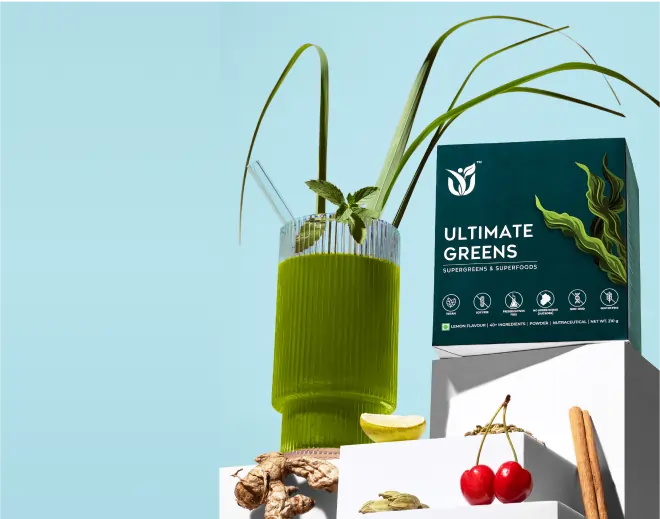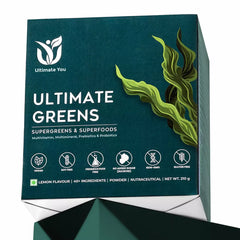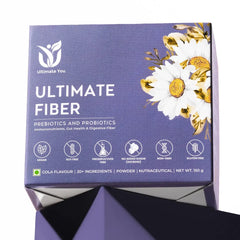Discover how Virat Kohli revamped his diet to achieve peak performance, focusing on plant-based foods, clean eating, and disciplined nutrition to fuel his legendary fitness journey.
Virat Kohli, one of the best batsmen in cricket today, has been a key member of the Indian squad for years. His aggressive play and reliable performances have earned him fans worldwide. Recently, during the 1st Test match against Australia in Perth, Kohli silenced critics by scoring his 30th Test century, dispelling any doubts about his form.
His graceful strokes, including the traditional cover drive and some daring unconventional hits, were a testament to his skill. With this, Kohli not only cemented his legacy but also outscored cricket legends like Sachin Tendulkar in Australia.
But what’s the secret behind his remarkable endurance, focus, and consistency at the age of 35? The answer lies in more than just his rigorous training. Kohli’s shift to a plant-based, nutrient-rich diet has been a crucial part of his fitness journey.
Imagine transforming your fitness and achieving peak performance like Kohli by fueling your body with a diet that boosts endurance, sharpens focus, and enhances recovery. His diet, rich in vegetables, lean proteins, and whole foods, has made him a powerhouse on the field, allowing him to perform at his best under intense conditions.
In this blog, we will delve into Kohli’s dietary choices, uncover the principles behind his healthy lifestyle, and explore the foods he consumes to maintain his form.
The Shift to a Cleaner, Vegetarian Diet
When Kohli experienced a number of health problems during his 2018 South Africa tour, his diet started to change. With extreme acidity, high uric acid, and calcium loss, Kohli decided to exclude meat from his diet. In order to address his health issues and improve his physical performance, he decided to become a vegetarian.
The effect was immediate: Kohli reported a discernible gain in stamina and endurance, and his energy levels improved. As a result, he now advocates for a plant-based, clean diet, which he says has helped him succeed at cricket.
Kohli's Diet Philosophy: Simplicity and Performance
At the core of Kohli's diet is the principle of simplicity. Foods that enhance his athletic performance are given precedence over those that only satiate taste buds by Kohli. He uses little spices and oils and cooks most of his food by boiling, steaming, or pan-grilling it. He has openly stated that he isn't overly concerned with the flavour of his food, preferring nutritious options that provide him with the right balance of energy, protein, and essential nutrients.
Whole, unprocessed meals high in vitamins, minerals, and plant-based proteins constitute the primary component of Kohli's diet. In addition to preserving lean muscle, the objective is to optimize food absorption and reduce intestinal stress. Kohli is able to sustain high energy levels while making sure his body gets the nutrition it needs to function at its best as a result of this diet plan.
Key Principles of Kohli's Diet
Virat Kohli's diet is built on a series of principles designed to keep him active and healthy. These guidelines highlight the significance of plant-based foods, steering clear of processed items, and ensuring adequate hydration. Here are the key aspects of his diet:
Minimally Processed Foods
Kohli chooses to eat whole foods instead of processed ones. He avoids refined carbohydrates, sugary snacks, and artificial additives, choosing fresh vegetables, grains, and legumes as the foundation of his meals.
Plant-Based Protein
A significant portion of Kohli's protein intake comes from plant-based sources such as lentils, beans, tofu, quinoa, and spinach. These foods provide essential amino acids that support muscle repair and growth while being gentle on the digestive system.
Simple Preparations
Kohli's meals are generally simple, with minimal seasoning. He prefers steamed or boiled dishes seasoned with just salt, pepper, and lime. He also enjoys pan-grilled vegetables and tofu, which are lightly cooked with olive oil.
Hydration
Staying hydrated is essential for Virat Kohli, especially during long cricket matches. He drinks plenty of water and green tea to support his hydration and metabolism. There are misconceptions about him drinking black water, but that’s not accurate.
Black water is dark due to special minerals that supposedly aid in body cleansing, though the evidence is limited. On the other hand, alkaline water has a higher pH (above 7), making it less acidic than regular tap water. Proponents claim it can neutralize blood acidity, boost metabolism, and slow ageing.
No Added Sugar or Dairy
Since shifting to a vegetarian diet, Kohli has eliminated sugar from his meals and significantly reduced his dairy intake. Instead of sugary snacks, he opts for naturally sweet fruits like watermelon, papaya, and dragon fruit. His reduced dairy consumption is complemented by more soy-based dishes, which offer a variety of protein options.
Virat Kohli's Simple and Effective Diet
Virat Kohli keeps his body fat low and his energy levels up by eating a diet high in protein and low in carbohydrates. He eats a range of nutritious meals every day, including quinoa, lentils, beans, and tofu.
Breakfast: Kohli begins his day with a healthy breakfast that includes a bread omelette and cooked eggs, along with paneer salad, fresh spinach, and black pepper.
Lunch: He has a protein smoothie along with a mix of mashed potatoes, brown bread, almonds, and other vegetables. Dal, rajma, and lobia are classics that provide a nice balance of carbohydrates and protein in this lunch.
Dinner: In accordance with his and his wife Anushka Sharma's vegetarian diet, Kohli chooses to eat roti, dal, and a variety of green leafy vegetables for a simple and balanced dinner.
Snacks: Kohli's snacks are carefully chosen to provide sustained energy and prevent unhealthy cravings. He opts for dry fruits, protein shakes, soy-based snacks, and fresh fruits like papaya, dragon fruit, and watermelon. On occasion, he enjoys nut butter on gluten-free bread or pan-grilled dishes with a drizzle of olive oil.
Kohli adopts this strategy, putting more emphasis on how food enhances his performance than on its flavour. He adheres to a high-protein vegan diet. His diet is a sensible choice for maintaining optimal athletic performance because it minimizes digestive strain and increases nutrient absorption by emphasizing complete, unadulterated meals.
Foods that Kohli Avoids: A Strict Regimen
While Kohli's diet is rich in wholesome, plant-based foods, there are certain food habits he consciously avoids. His choices are driven by a desire to maintain peak performance, avoid digestive strain, and support overall health.
Fried and Processed Foods
Kohli strictly avoids fried foods, which are high in unhealthy fats and can negatively affect digestion and energy levels. Processed snacks, which are often high in sugar and salt, are also off his menu.
Curries and Spicy Dishes
Growing up as a Punjabi, Kohli was surrounded by rich curries and spicy foods. However, after adopting a vegetarian lifestyle, he has cut back on curries, particularly those loaded with heavy masalas. Instead, he leans towards more straightforward, lighter dishes that are gentler on the stomach and promote better digestion.
Sugary Foods and Beverages
A significant shift in Kohli's diet has been the removal of sugar. He steers clear of sugary drinks, processed snacks, and desserts, choosing natural sweeteners and whole fruits instead. This decrease in sugar intake has helped him maintain steady energy levels throughout the day, benefiting both his performance and overall health.
Gluten
As part of his clean eating regimen, Kohli also avoids foods that contain gluten. Cutting out gluten lowers the chances of inflammation and digestive discomfort, which can negatively impact his athletic performance.
Key Health Benefits of Kohli’s Diet
Virat Kohli's diet goes beyond just keeping a lean physique; it aims to enhance his athletic performance and overall health. By sticking to a plant-based, minimally processed diet, he ensures his body gets optimal nutrition. Here are some key health benefits of his dietary choices:
Improved Digestive Health
Kohli's emphasis on whole, plant-based foods with minimal spices and oils promotes healthy digestion. This strategy helps reduce bloating and indigestion, allowing him to perform at his peak without being affected by digestive issues.
Enhanced Endurance and Recovery
By following a diet rich in plant-based proteins, vegetables, and whole grains, Kohli maintains his energy during lengthy training sessions and matches. His meals also facilitate quicker recovery, supplying essential nutrients that aid in muscle repair and lessen fatigue.
Stronger Immunity
Kohli's diet, packed with fruits, vegetables, and antioxidants, strengthens his immune system. His emphasis on hydration and nutrient-dense foods helps his body recover more effectively from physical exertion and stay resilient against illness.
Better Mental Clarity
Kohli's diet also contributes to mental clarity and focus, which are essential for a cricketer in high-pressure situations. A balanced diet with adequate protein, healthy fats, and complex carbohydrates supports cognitive function and concentration.
Conclusion
Virat Kohli's quest for a healthy diet is seen as evidence of his dedication to performance and fitness. His optimum athletic form has been greatly supported by a diet that emphasizes healthy foods, simplicity, and plant-based nutrition.
A powerful example has been set for athletes and fitness fanatics around the world through his dietary choices, which maximize energy levels and nurture the body. One of the main factors believed to contribute to his ongoing success on the cricket field is his readiness to embrace change and modify his diet for the benefit of his health and profession.
Disclaimer
The information provided is for educational purposes only and is not intended to be a substitute for medical treatment. If you're pregnant, nursing, taking medication, or have a medical condition, it's better to consult a healthcare professional. Ultimate You do not provide any guarantee regarding the accuracy, adequacy, completeness, legality, reliability, or usefulness of the information and disclaim any liability arising from it.

Sai Tirumala Vasireddy
Certified Nutritionist
Holds a master’s degree in Food and Nutritional Sciences and specialised in Applied Nutrition. Passionate about sports nutrition, she focuses on enhancing individual’s performance through customised diet plans and sustainable eating habits. Her expertise and enthusiasm for healthy living make her a valuable resource for those seeking to improve their health and performance.
Tags
- Choosing a selection results in a full page refresh.
- Opens in a new window.
15%

on your next order
By submitting your email address, you agree to receive marketing emails from Ultimate You at the email address provided. We may use information collected about you on our site to suggest the products and offers. you can withdraw your consent at any time by following the unsubscribe instructions in any email we send to you. view Terms and Privacy. Contact Ultimate Customer Care at #204-8430 Saint Monica Building, near Char Miner, Hyderabad, India, 203455.









